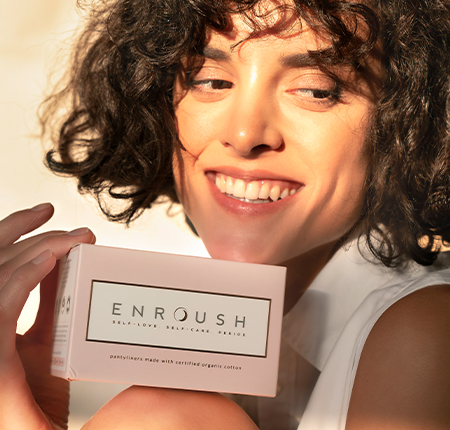
Do you have a disability or know someone with a physical or intellectual disability?
What does "disability" mean? The dictionary definition is "a physical, mental, cognitive, or developmental condition that affects, interferes with, or limits a person's ability to engage in certain tasks or actions or to participate in typical daily activities and interactions."
And that means that while menstruation is pretty much the same for everyone, not everyone can apply the same intimate care tips. Because we are different.
What kind of disabilities are there?
body
There is a wide spectrum of physical disabilities and it would take us a long time to list all the possible types, but some examples are: multiple sclerosis, spinal cord injury, epilepsy, visual impairment, cerebral palsy, amputation of a limb and many others.
For some disabled people, managing their periods may not be a problem, but for others, a simple action (such as changing a tampon) takes more effort than we might imagine. 
intellectual
Down syndrome, Prader-Willi syndrome, developmental delays and others bring with them a number of difficulties that make menstruation a stressful experience. In addition, educational materials to adapt to diverse learning requirements are often lacking.
When you don't have any disability, it's easy to get used to your period and manage it on "autopilot". But if you think about what all the steps involve (tracking the due date, preparing menstrual products, changing products, knowing the risks - toxic shock syndrome - cramp relief, and more) you realize that all of this can become extremely difficult .
What do the studies tell us?
Many of these people report dysmenorrhea (painful periods), menorrhagia (heavy periods), menstrual hygiene problems, and PMS symptoms. But the challenges do not stop there.
People with such disabilities often face a number of barriers including:
Lack of information about managing your cycle when you have a disability
Educational materials that do not include aspects relevant to people with disabilities
Difficulty accessing social support and health services
Greater physical and emotional difficulties than non-disabled people
Lack of specially designed sanitary facilities
Unsustainable menstrual products that contain chemicals and toxins
Discrimination and stigmatization
If you have a hard time grasping this perspective, think about it: you have a disability and you can't feel anything below the waist. You can't feel when you're leaking and you don't feel comfortable letting others help you apply a tampon. what are you doing Exactly… the logistics and management of menstruation becomes a real puzzle for you to solve. 
What helps disabled people with menstruation?
Perhaps the first and simplest thing we can all do is talk openly about the menstrual cycle and disability issues to reduce stigma. Ask your friends, get informed and educate those around you about less talked about topics. You can recommend resources, tracking apps and organic menstrual products to those in need and most importantly, you can change your attitude about disability and the menstrual cycle! 
ENROUSH's mission includes caring for ALL menstruating people, making life easier for everyone "at that time of the month" by:
Absorbents and tampons safe for your health, made of 100% GOTS certified organic cotton, no hidden ingredients and no risks for your body
Home deliveries , both by postal services and by courier
Single payment - by cash on delivery or online - with the card, or recurring (with the subscription, your card will be charged automatically depending on the frequency of delivery)
Subscriptions , to save time and energy – which you can change or discontinue according to your needs, at no additional cost






















